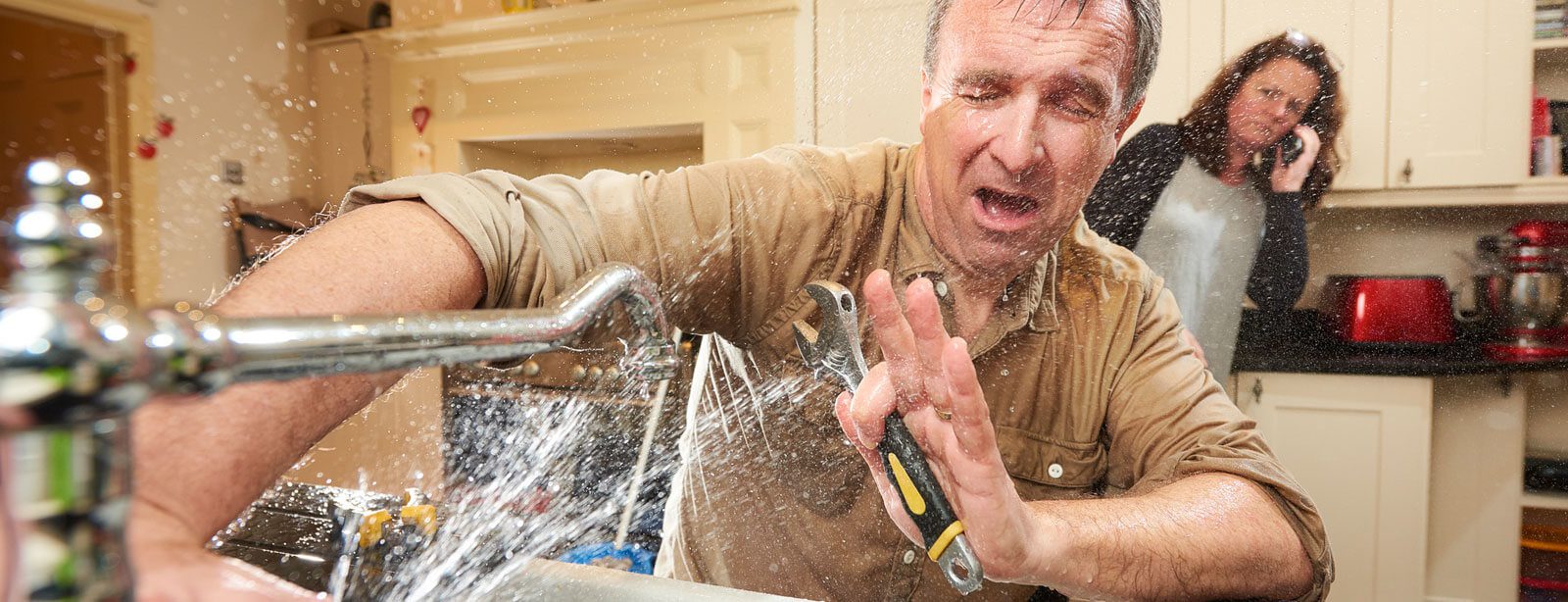Plumbing Tips: When To Call A Plumber
Gainesville and the surrounding North Central Florida region are home to thousands of do-it-yourselfers. We applaud the DIY movement, but it’s important that residential handymen and women stay safe while doing home repairs. Knowing how to choose a plumber is important. We recommend contacting Quality Plumbing of Gainesville Inc. for the installation of new pipes, bathtubs, faucets and sinks; any issues that may arise concerning a water heater or hot water tank; septic tank leaks; breaks in a sewer line; or any new construction for which a permit is required. Our list of frequently asked questions will help you better understand your plumbing system, discern which issues need professional assistance, and perform occasional DIY repairs as safely as possible.
- Common Plumbing Repairs
- Plumbing Maintenance Tips
- Summer Plumbing Tips
- Plumbing Leaks & Repairs
- Prevent Issues During Hosted Events
- Prepare Plumbing Before Vacations
- Prevent Damage from Frozen Pipes
- What To Do Until Plumber Arrives
Did You Know?
- A leaky faucet can waste hundreds of gallons of water every year. In addition to wasting usable, drinkable water, a leaky faucet also increases water bills.
- Low water pressure can be indicative of a more serious plumbing issue. Contact a licensed plumber to pinpoint the cause.
- Leaking pipes can compromise foundations, ruin floors and destroy walls. Many times, these leaks are not visible, so the damage may affect the structural integrity of a home or building.
As professional plumbing service providers, Quality Plumbing of Gainesville Inc. is available for all of your residential, commercial or multi-family plumbing needs, including plumbing emergencies.
DIY Plumbing Tips
For every situation you decide you can handle on your own, guidelines for do-it-yourself Gainesville plumbing can help you increase safety and efficiency while you fix or give maintenance to fixtures in several areas of your home. These tips from plumbers in Gainesville can remind you of little things you can habitually clean, adjust or check for proper functioning as a precaution and a way to detect potential plumbing issues as early as possible.
Bathroom Plumbing:
- Check the caulk line on the walls around tubs and showers and the inside edge of shower door tracks regularly to make sure there are no leaks.
- Periodically remove and clean all aerators.
- Try your best to avoid hair going down the drain. You could use a drain strainer to keep hair and soap out.
- Avoid hanging shelves, especially those for heavy objects, over sinks and toilets and using the lid of the toilet tank as a shelf.
- Do not pour boiling water into the toilet; it could crack the bowl.
- Sometimes after flushing the toilet, the flapper fails to sit properly and form a tight seal against the valve seat, which leads to water from the tank leaking into the bowl. Listen carefully so that if you detect the sound of water running minutes after using the toilet, you can fix this quickly.
- Prevent children from playing in the bathroom with small toys that could get dropped into and stuck in drains or pipes. Keeping the toilet seat down when not in use helps prevent unwanted objects from falling into it.
General Plumbing:
- It’s a good idea to have a diagram of your sewer system handy in case of emergencies. Also, keep warranty cards of all your appliances.
- You may also want to spray oil or WD-40 on valves that you don’t use often to help them stay functional for when you eventually need them.
- Don’t dig deep holes in your yard before locating all water, gas and sewer lines. Avoid planting trees or large shrubs above these lines, too.
Kitchen Plumbing:
- Limit the use of drain cleaners that contain lye.
- Try not to store many items under the sink.
- Refrain from putting coffee grounds, cooking oils and other fats, and fibrous foods like celery, asparagus, artichokes, potato peelings and onion skins into the garbage disposal.
- Run water at full pressure when using the garbage disposal, and don’t run the dishwasher if the disposal is full with food waste.
Water Heaters:
- Avoid setting the water temperature above 120 degrees Fahrenheit.
- If you leave your home for a long time or on vacation, turn off the hot water system.
- Open the drain on the water heater twice a year to remove sediment.
Water Supply Pipes & Valves:
- Insulate pipes that may be exposed to severe winds or freezing temperatures.
- If you have frozen pipes, do not try to thaw them with open flames or torches. Use a heat gun or hair dryer instead.
Outside Faucets:
- Shut off outside valves in extreme weather, especially if they are not being used, and don’t leave garden hoses attached to the hose bib in winter.
Finally, don’t let Gainesville plumbers begin to do work without understanding precisely what they plan to do.
